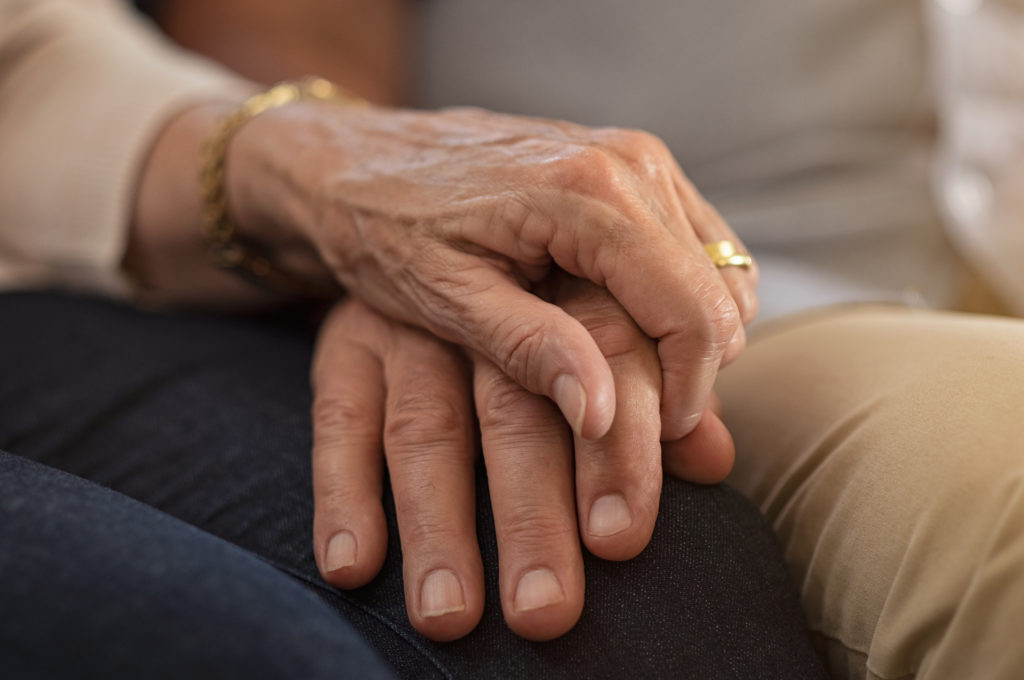
By the year 2030, it’s projected that one in five Americans will be over the age of 65. Yet even as the U.S. population gets older and researchers begin to understand more about the aging process, there are still some myths and negative stereotypes surrounding memory and aging.
Today, we’re shedding some light on the truth behind these misconceptions. Here are three of the most common age and memory-related myths, debunked:
Myth #1: Forgetfulness is always something to worry about
Everyone forgets things from time to time, no matter their age. It’s important to recognize that mild forgetfulness is a normal and natural part of aging and not necessarily a sign of dementia.
As we get older, certain changes take place in our bodies, including in the brain. You may notice that older loved ones are slower to learn new things, have trouble multitasking, forget information from time to time, or occasionally lose items like their keys or glasses. For many people, these changes don’t interfere with their daily life. Mild forgetfulness can be combated by writing to-do lists, staying organized, and setting reminders using smartphones or other technology.
On the other hand, if you or your loved one experiences significant memory loss and confusion that negatively impacts daily activities, talk to a doctor. This could be an early sign of dementia or another memory condition.
Myth #2: Every adult develops dementia as they age
This is far from the truth. Worldwide, ten million individuals are diagnosed with dementia every year, but dementia is not an inevitable part of aging. In fact, up to 40% of dementia cases may be prevented or delayed by addressing risk factors and making changes to one’s habits and lifestyle.
Here are some ways to protect your brain health and help reduce the risk of cognitive impairments:
- Be physically active. In addition to boosting brain health, being active can reduce stress, anxiety, and depression, improve sleep, and help you maintain a healthy weight.
- Control and maintain a healthy blood pressure level. High blood pressure may increase the risk for dementia.
- Manage sugar intake. Chronic high blood sugar levels have been linked to Alzheimer’s and other forms of dementia.
- Stay connected. Being involved in your community and having a strong social network can reduce loneliness and isolation, and help lower the risk of developing dementia.
Myth #3: It’s too hard for older adults to learn new things
Whether it’s a new hobby, a new instrument, or even a new language, no one is ever “too old” to learn something new! The truth is that learning new things can actually help combat age-related memory loss and serious cognitive conditions such as dementia as we get older.
Take steps to keep your mind active and engaged by solving puzzles, playing new games, learning a creative skill, or picking up that book you’ve always wanted to start. Your brain will thank you!
When is it time to consider Assisted Living Memory Care?
While some cognitive changes are a normal part of aging, memory lapses that become more frequent and impact daily activities could be a sign of dementia or another memory condition. If you have concerns, don’t wait to talk with a doctor. An early diagnosis can allow individuals to begin treatments that may help slow the rate of cognitive decline and enhance their overall quality of life.
When older adults with memory conditions need more help than can be provided at home, Assisted Living Memory Care provides a safe and secure solution. At Bethany Village, our newly renovated Assisted Living Memory Care community, Pavilion, offers 24/7 memory care and support in a soothing, family-like environment.
The comfort and personal dignity of each Pavilion resident is ensured with a range of innovative, person-focused memory care programs designed to fit their interests, maintain their quality of life, and make the most of each day. Examples of these programs include:
- Art, music, and pet therapy programs encouraging self-expression
- Conversation programs prompting communication, interaction, and connection
- Movement-based activities exercising both body and mind
- A resident turn down service promoting relaxation at bedtime
If you’d like to learn more about life at Pavilion Assisted Living Memory Care, please contact us today. We’d be delighted to provide more information and answer any questions you may have.
